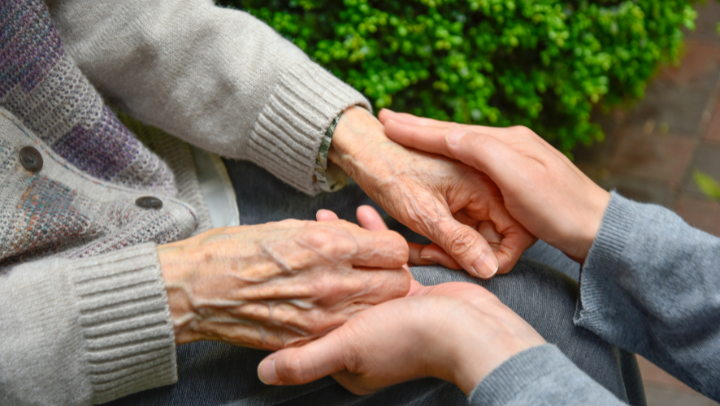
Breaking the Ice: Initiating a Conversation About Assisted Living in Eastside Tacoma with Your Spouse
Understanding the Need for Assisted Living in Eastside Tacoma
As we navigate the complexities of aging, the decision to consider assisted living can be a daunting one. In Eastside Tacoma, where the golden years are meant to be cherished, recognizing the signs that your spouse may require additional support is crucial. From mobility challenges to memory concerns, these indicators serve as gentle reminders that a conversation about assisted living options is warranted.
Eastside Tacoma, a vibrant community nestled in the heart of Tacoma, offers a wealth of assisted living facilities designed to cater to the unique needs of seniors. These communities provide a nurturing environment where residents can thrive, fostering independence while ensuring their well-being is a top priority.
Signs That it May Be Time to Consider Assisted Living for Your Spouse
- Difficulty with daily tasks: If your spouse is struggling with activities of daily living, such as bathing, dressing, or managing medications, it may be time to consider additional support.
- Memory lapses: Frequent memory lapses, forgetting important appointments, or getting lost in familiar surroundings could signal the need for a more structured and supportive environment.
- Decline in personal hygiene: A noticeable decline in personal grooming habits or neglect of household chores may indicate that your spouse requires assistance with these tasks.
- Social isolation: If your spouse is becoming increasingly withdrawn and isolated, it could be a sign that they are struggling to maintain social connections and may benefit from the community atmosphere of an assisted living facility.
- Safety concerns: Falls, wandering, or an inability to safely navigate the home environment could put your spouse’s well-being at risk, necessitating a safer and more secure living arrangement.
By recognizing these signs early on, you can initiate a thoughtful conversation and explore options that prioritize your spouse’s comfort and well-being.
Approaching the Conversation with Empathy and Understanding
- Choose the right time and place: Select a quiet, comfortable setting where both of you can engage in an uninterrupted conversation. Avoid bringing up the topic during stressful or emotional moments.
- Listen actively: Allow your spouse to express their concerns, fears, and preferences without judgment. Active listening will help them feel heard and understood, fostering a more collaborative decision-making process.
- Validate their emotions: Acknowledge and validate their feelings, even if you disagree with their perspective. Reassure them that their emotions are valid and that you are there to support them throughout this transition.
- Emphasize their well-being: Frame the conversation around your desire to ensure their safety, comfort, and quality of life. Highlight the benefits of assisted living, such as access to professional care, social activities, and a supportive community.
- Involve them in the decision-making process: Encourage your spouse to participate in researching and evaluating assisted living options. This sense of control and autonomy can help alleviate feelings of powerlessness and promote a smooth transition.
Remember, this conversation is not a one-time event but the beginning of an ongoing dialogue. Be patient, understanding, and open to addressing their concerns as they arise.
The Benefits of Assisted Living for Both You and Your Spouse
For your spouse:
- Personalized care and support: Assisted living facilities offer personalized care tailored to your spouse’s unique needs, ensuring they receive the appropriate level of assistance with daily tasks, medication management, and overall well-being.
- Enriching social opportunities: Residents have the opportunity to engage in various social activities, events, and outings, fostering a sense of community and preventing social isolation.
- Nutritious meals and dietary accommodations: Assisted living communities provide nutritious, well-balanced meals that cater to specific dietary needs, ensuring your spouse receives proper nourishment and hydration.
For you as the caregiver:
- Peace of mind: Knowing that your spouse is receiving professional care and support can alleviate the stress and burden associated with caregiving responsibilities.
- Improved quality of life: With the assistance of the facility’s staff, you can regain a sense of balance in your life, allowing you to focus on your own well-being and personal relationships.
- Strengthened relationship: By relieving the strain of caregiving duties, you and your spouse can enjoy a more fulfilling and enriching relationship, focusing on quality time together.
Adjusting Your Daily Routine and Maintaining a Strong Relationship
As your spouse transitions to an assisted living facility, it is essential to adapt your daily routine and find new ways to maintain a strong, meaningful relationship.
- Establish a visitation schedule: Develop a regular visitation schedule that works for both you and your spouse. This consistency can provide a sense of familiarity and routine, fostering a stronger bond.
- Engage in shared activities: Participate in activities and events offered by the assisted living community, such as exercise classes, game nights, or social gatherings. These shared experiences can create new memories and strengthen your connection.
- Celebrate special occasions: Mark important milestones, holidays, and anniversaries together. Continuing cherished traditions can provide a sense of continuity and reinforce the significance of your relationship.
- Communicate openly and honestly: Maintain open lines of communication with your spouse, addressing any concerns or challenges they may face during the adjustment period. Active listening and understanding can deepen your emotional connection.
Addressing Common Concerns and Misconceptions About Assisted Living
- Loss of independence: One of the most common concerns is the fear of losing independence and autonomy. It’s important to reassure your spouse that assisted living facilities are designed to promote independence while providing necessary support. Residents are encouraged to maintain their routines, engage in activities, and make choices about their daily lives.
- Quality of care: Some individuals may have preconceived notions about the level of care provided in assisted living facilities. However, reputable communities in Eastside Tacoma prioritize personalized care plans, trained staff, and a commitment to ensuring the well-being and dignity of residents.
- Social isolation: There is a misconception that assisted living facilities can lead to social isolation. In reality, these communities offer a vibrant social environment with various activities, events, and opportunities for residents to connect with others who share similar interests and experiences.
- Unfamiliar surroundings: Leaving the familiarity of home can be unsettling for your spouse. Encourage them to personalize their new living space with cherished belongings and mementos, creating a sense of comfort and familiarity in their new environment.
Conclusion
Initiating a conversation about assisted living in Eastside Tacoma with your spouse can be daunting, but it is a necessary step in ensuring their well-being and quality of life. You can navigate this transition together by approaching the topic with empathy, understanding, and a commitment to open communication, fostering a sense of security and support.
Remember, the decision to move to an assisted living facility is not a surrender of independence but rather an opportunity to embrace a new chapter filled with personalized care, social connections, and a nurturing environment. Eastside Tacoma’s vibrant assisted living communities offer a wealth of resources and amenities designed to promote your spouse’s overall well-being while providing you with peace of mind.
If you’re considering assisted living options in Eastside Tacoma for your spouse, we invite you to explore our community at Peoples Senior Living. Our dedicated staff is committed to providing personalized care, engaging activities, and a nurturing environment fostering independence and well-being.

